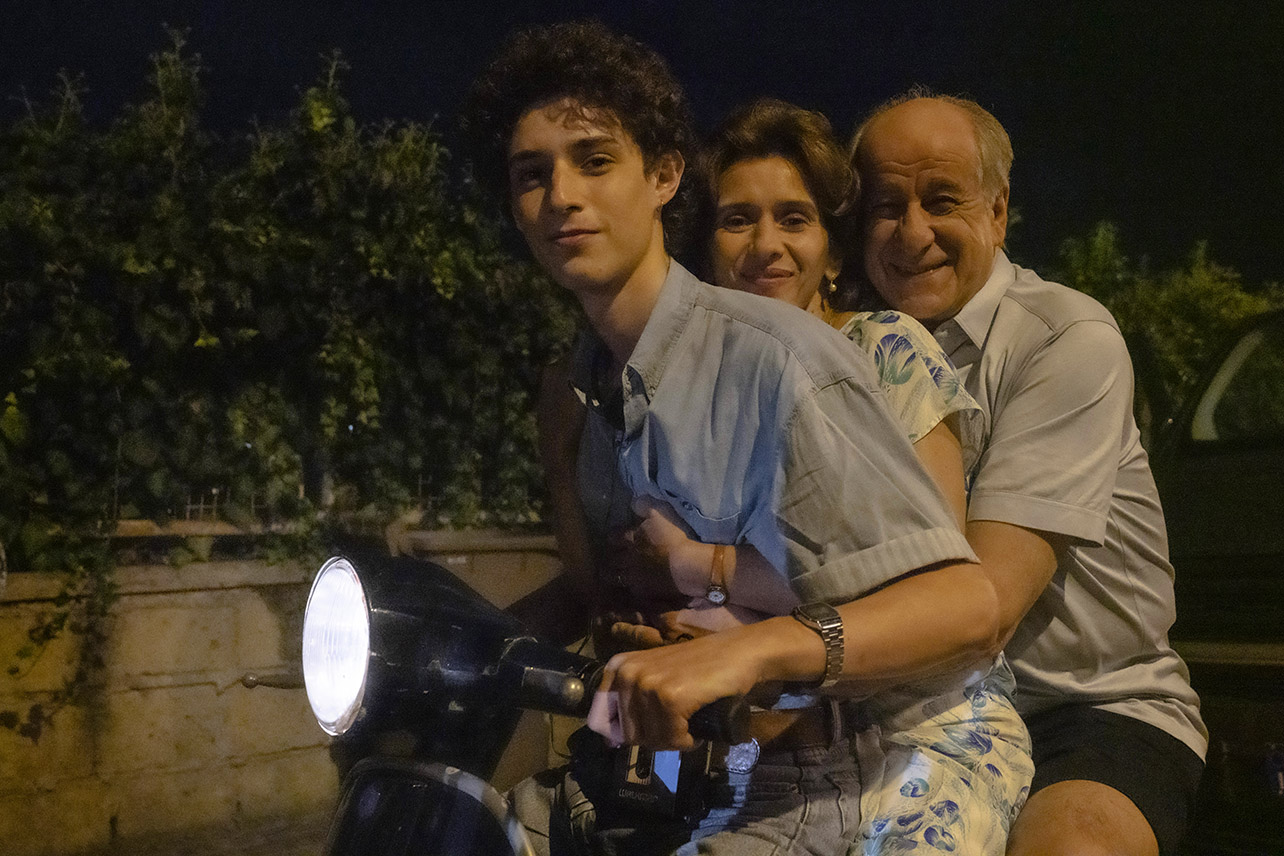When a really talented directors goes back to their roots to tell a deeply personal story, the results are almost always dynamite. Alfonso Cuaron had Roma. This year, Kenneth Branagh Belfasted us into smiles. And now, Paolo Sorrentino takes us to the Napolitano shores of Italy. His The Hand of God is a roller coaster ride of events that also shows family drama translates into every language; I mean, nothing’s funnier than making grandma curse, right?
Sorrentino’s stand in, Fabietto Schisa (Filippo Scotti), is living in a time! 1980s Naples for him is filled with excitement: Diego Maradona, the greatest footballer on the planet, is considering transferring to his favorite team, and a famous director, Capuano (Ciro Capano), is making a movie downtown all summer. During this lovely tumult, Fabietto happily enjoys time with his family, including his loving mom (Teresa Saponangelo), dad (Toni Servillo), and brother (Marlon Joubert) and requisite hot aunt Patrizia (Luisa Ranieri).
I guess the coronavirus pandemic made everyone do a lot of introspection about the meaning of life. Sorrentino landed on life vacillating between comedy and tragedy, unexpectedly so. Also, in every tragedy lies at least a little comedy, and vice versa. One of Sorrentino’s best scenes involve two different parents leaving unexpectedly from their surroundings; in 5 minutes, Sorrentino has you nearly crying from laughter at the consequences of one parent leaving, then actually crying from despair because of another parent’s departure. Young Fabietto is emotionally pulled all over the place, taking it all in and rarely reacting, except for the most extreme moments of his life, some euphoric, some traumatic. Sorrentino’s emotional sharp turns keep the audience on their toes, unsure where each scene is going to go, in mostly an exciting way for his film. And all these sharp turns in Naples shape who Fabietto is and who he becomes, as he changes where he wants his life to go and what he wants to do with it.
But never far from the story is a good joke or five. Sorrentino leans hard into family dynamics to drive large chunks of The Hand of God’s comedy, making the movie mostly light on its feet until it drops its swift hammer. The Schisa family is filled with all sorts of fascinating characters at home on any TV sitcom. I would have watched multiple seasons of “Schisa”phrenic. Patrizia is a walking hot mess, actively wearing revealing clothing then getting pissed that her husband is pissed at her voluptuous outerwear. The Schisa family has a Baronness (Betti Pedrazzi) staying with them that’s the hot goss agoraphobe, uptight almost all the time, but hiding secrets/strange wisdom that made my eyes pop out of my head. Anchoring this clusterf*ck of a family are mom (Maria) and dad (Saverio) Schisa, capturing that worn in love only couples in a long term relationship could possess, using cute shorthands and getting into quick fights and makeups. But Sorrentino’s ace in the hole I won’t reveal, but the lead up to their arrival is only matched by the delight everyone has with the strange quirks of the couple that show up, used in amusing ways almost every time.
The Hand of God will make you laugh, and cry, and swoon. What are you swooning over? Well, any shot of life on the shores of Naples is just breathtaking to see. So props to you Paolo Sorrentino, going back to your roots to film your childhood in one of the most gorgeous places on the planet. The horrible pills you had to swallow must have gone down a little easier living in paradise.

